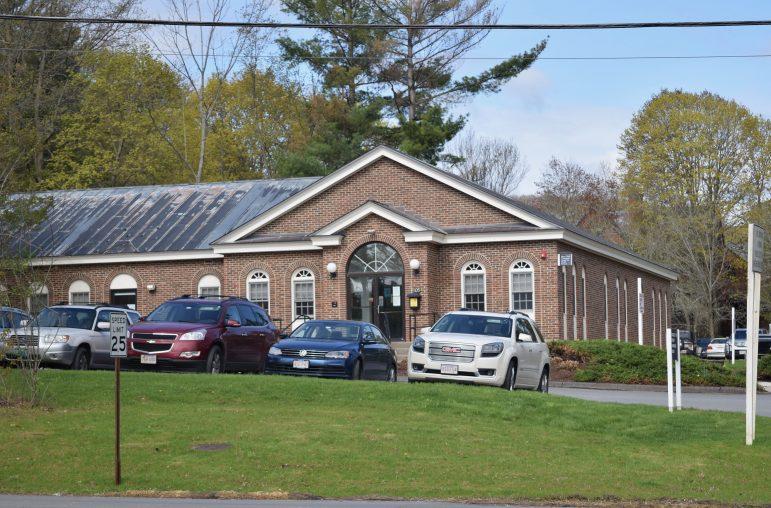
The Student Health and Wellness services, which includes the Health Center and Integrative Wellbeing Services (IWS), closes each summer, posing challenges to the increasing number of students who work on campus over the summer. In response, the College will be providing free transportation to local hospitals, in addition to opening the Health Center and IWS earlier in August for students arriving before First Days.
Steve Klass, vice president for campus life, explained that the closure was a result of original staffing contracts at the Health Center that did not entail the provision of summer services. “Many of our clinicians have family obligations during what are currently scheduled downtimes; these are the conditions under with they were hired,” Klass said. “Consequently, it will require significant planning to provide even reduced summer services.”
While the Health Center website provides basic information on local resources such as the Berkshire Medical Center North, Berkshire Medical Center South, Southwestern Vermont Medical Center and more, students find it difficult to get to these locations. Furthermore, many students who stay on campus over the summer choose to do so because of financial reasons, and, as a result of this, the lack of affordable health care options can be especially detrimental during that period.
Onyeka Obi ’21, who had a concussion last spring semester, and still experienced symptoms into the summer, faced extreme difficulties as she struggled to juggle her research and work without any medical support. To Obi, outside medical sources were not a viable option because she was afraid of the unexpected costs that she would have to cover. As a result of this uncertainty, she did not seek medical help despite the health risks.
“I was completely unsure of how to get there, how to get back, who could reliably take me, what kind of repercussions it would have, or what they would discover,” Obi said. “It was really scary for me. I didn’t know what resources I had because [the Administration] didn’t explain them to me at all.”
Sam Jocas ’21, who stayed on campus last summer, also shared how he was unable to receive proper medication and help for his mental health in his op-ed for the Record (“A case for summer wellness: On the lack of adequate healthcare at the College,” May 1 ,2019).
One recurring problem highlighted by students was the fact that the closure of the Health Center was not communicated effectively prior to the students’ arrival. Unable to take preemptive steps before arriving on campus, Jocas had to fly from Albany to Canton, Ohio one weekend to meet with a doctor and get SSRIs (Selective Serotonin Reuptake Inhibitors) prescribed, only to fly back 24 hours later in time for work that Monday.
In previous years, in addition to the closing of the Health Center, there was minimal information conveyed to student body in regards to which facilities and amenities were avaliable to them. Jocas spoke of a cultural shift of Williams transitioning from an “educational body” to a “labor body,” during the summer, as student workers are now prioritizing work.
“So you show up on campus and all of a sudden all of these things you utilized as a student to exist on campus — the Health Center, transportation, network of individuals who you can talk to about xyz problems — you all of a sudden don’t have,” Jocas said.
In light of the problems that were highlighted by students like Obi and Jocas, Klass announced the aforementioned new, alternative health care options for students who will be staying on campus this year. In addition to opening the Health Center and IWS opening two weeks earlier in August to address the larger number of students who are coming back before First Days, there will also be non-emergency medical transport van systems in place during the summer to connect students who need non-emergency care (urgent care, physical therapy, etc.) to local hospitals at no cost.
However, this change could still be difficult for students to navigate, as most summer workers on campus are on shift from 9 a.m.-5 p.m., and commuting to nearby towns is not an easy task.
Structural problems with the Health Center have also come to the College’s attention. Klass explained that the facility was designed before the current impact of climate change on the region and with the intention of remaining closed during the summers. “Now that summers have been consistently warmer and more humid for much longer stretches than in previous years, this has had made the Health Center mostly unusable for healthcare for longer and longer stretches of the summer,” he explained.
The College is planning to install air-conditioning in the facility this summer to remedy this problem. Nonetheless, the possibilities of the Health Center opening for summer services in the future still remain unclear.
For students who are planning to stay on campus this summer, there are alternative options they could look into in preparation for the closure of IWS, with some therapists at IWS maintaining private practices locally, seeing some students who stay in the area over the summer outside of the College.
Despite some accommodations, students who have struggled with the healthcare options on campus over the summer are calling for a change. “This campus needs reform in a lot of ways, and especially with regards to students specifically with mental health, just general wellbeing and the fact that students are expected to work here during the summer without any 100 percent way to make sure that we’re safe and secure, is a huge oversight by the College and completely unethical,” Obi said.
“As an institution, it is the College’s responsibility to keep the Health Center open over the summer in order to meet the basic needs of the summer workers who keep the College functioning throughout the summer months,” Jocas wrote in his op-ed.








